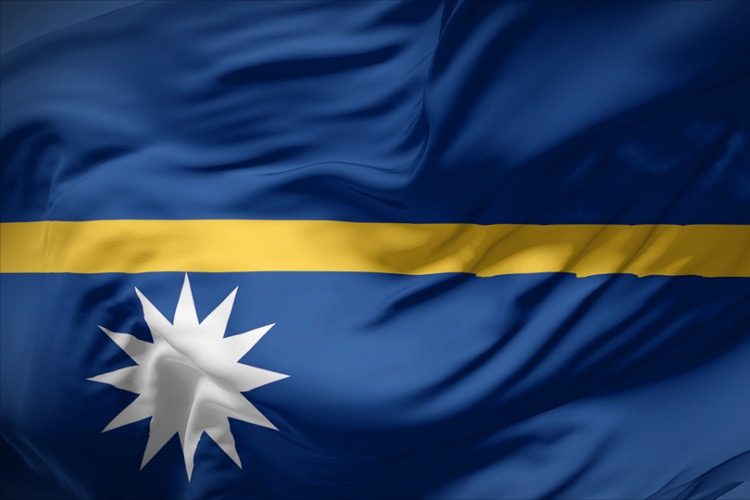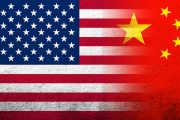
On January 15, Taiwan lost one of its few remaining diplomatic allies — Nauru — to China, just two days after it elected a new president.
Undeterred, Taipei reinforced its will to go out into the world.
The government of the tiny Pacific Island nation declared that “in the best interests” of Nauru and its people, it was hoping for a full resumption of diplomatic ties with China and would cut relations with Taiwan.
Nauru had previously recognized China between 2002 and 2005.
“This means that the Republic of Nauru will no longer recognize the Republic of China (Taiwan) as a separate country but rather as an inalienable part of China’s territory, and will sever ‘diplomatic relations’ with Taiwan as of this day and no longer develop any official relations or official exchanges with Taiwan,” the government declared in a statement.
China regards the self-governing island of Taiwan as its territory to be reunified with the mainland, by force if necessary. Taiwan dismisses China’s sovereignty claims.
For years, both China and Taiwan have exchanged barbs, accusing the other of using “dollar diplomacy” as they compete for diplomatic recognition.
Taiwanese security officials told Reuters before the January 13 election that China was likely to continue to woo the handful of countries — now down to a dozen — that maintain formal diplomatic relations with Taipei.
William Lai Ching-te, repeatedly denounced by China before the polls as a dangerous separatist, won the election for the ruling Democratic Progressive Party (DPP) and will assume power on May 20.
In response, Taiwan Deputy Foreign Minister Tien Chung-kwang told a media briefing after Nauru’s announcement that the news had come suddenly.
Beijing specifically chose the sensitive timing after the election to target Nauru, Tien said, calling the move “ambush-like” and amounting to a “blatant attack on democracy” just as many countries were offering congratulations to Taiwan on its smooth voting process.
“Taiwan did not bow to the pressure. We elected who we want to elect. That’s unbearable for them,” he continued.
China had offered Nauru, with a population of 12,500, money far in excess of what Taiwan provides its allies, Tien said. “Once again, it proves that China’s trying everything they can — money diplomacy — to repress us,” he posited.
A senior Taiwan official briefed on the matter, speaking on condition of anonymity as he was not authorized to speak to the media, said Beijing is offering Nauru U.S. $100 million a year.
A Nauru government spokesperson declined to comment.
For its part, China’s Foreign Ministry said it appreciated and welcomed Nauru’s decision. Notably, it did not directly answer a question on how much money it had offered.
“Nauru, as a sovereign state, has made the right choice to resume diplomatic relations with China independently,” ministry spokeswoman Mao Ning said in Beijing.
Taiwan’s Presidential Office said Beijing’s move was equivalent to a suppression of the island’s diplomatic space but could not jeopardize the will of the Taiwanese people to go to the world, nor could it change the reality that Taiwan and China are not subordinate to each other.
Taiwan’s 12 remaining diplomatic allies include the Vatican, Guatemala, and Paraguay, plus Palau, Tuvalu, and the Marshall Islands in the Pacific.
Nauru is a small and remote Pacific Island nation that uses Australian currency and generates revenue from fishing licenses and hosting a regional processing center for refugees for the Australian government.
An Australian bank providing the country’s only banking service announced in December its plan to close its Nauruan operation.
Australia offers policing support and is a major aid donor, contributing A$46 million in development assistance in 2023.
The refugee processing center was slated to generate A$160 million in 2024, although Australia plans to wind it down over time.
In recent years, China and the United States have increased their competition for influence in the Pacific.
The diplomatic tug-of-war between Taiwan and China has entailed offers of generous aid packages and assistance in agricultural and educational development.
In 2019, Kiribati and the Solomon Islands both abandoned Taiwan for China in the space of a week.
On its end, the United States affirmed that its commitment to Taiwan is “rock solid” after the January 13 election, in remarks delivered by former U.S. national security advisor Stephen Hadley on January 15 during a trip to the island.
Furthermore, the United States voiced disappointment in Nauru for swapping its diplomatic ties with Taiwan for relations with China, while a de facto U.S. envoy to Taipei condemned the microstate’s “distorted” rationale.
“While the Government of Nauru’s action on Jan 15 to sever its diplomatic relationship with Taiwan is a sovereign decision, it is nonetheless a disappointing one,” the U.S. State Department said.
“Taiwan is a reliable, like-minded, and democratic partner. The PRC often makes promises in exchange for diplomatic relations that ultimately remain unfulfilled,” it said, alluding to China by its official acronym, the People’s Republic of China.
Speaking to the media in Taipei, Laura Rosenberger, the chair of the United States’ de facto embassy in Taiwan, opposed Nauru’s use of that resolution to justify its diplomatic switch.
“UN Resolution 2758 did not make a determination on the status of Taiwan, does not preclude countries from having diplomatic relations with Taiwan and does not preclude Taiwan from meaningful participation in the UN system,” Rosenberger said.
“It is disappointing to see distorted narratives about UN resolution 2758 being used as a tool to pressure Taiwan, limit its voice on the international stage and influence its diplomatic relationships.”
Rosenberger’s remarks came after an unofficial U.S. delegation made a post-election visit to Taiwan to meet political leaders, including current Taiwanese President Tsai Ing-wen and president-elect Lai.
On January 16, China rebuffed the United States’ expression of disappointment, calling it a “smear” agianst Beijing.
“It [the United States] is doing its utmost to smear and slander China’s diplomatic efforts, and put in a word for Taiwan to expand its space on the international stage,” foreign ministry spokesperson Mao Ning said.



